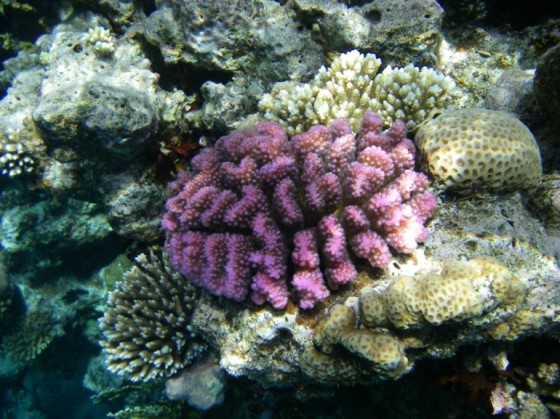 As the Red Sea gets hotter, what will be the fate of its magnificent coral reefs?
As the Red Sea gets hotter, what will be the fate of its magnificent coral reefs?
1,000 Israelis dropped their drawers over the weekend – a memorable event made even more so by acclaimed photographer Spencer Tunick, whose photo shoot in a secret location has drawn much-needed attention to the dying Dead Sea. The Red Sea could use similar treatment given its own environmental issues – sick coral reefs, oil spills ad nauseam, uninhibited post-revolution development in Egypt – but we might have to wait a while. In the meantime, Nature Middle East reports that researchers from King Abdullah University of Science and Technology (KAUST) have discovered not only that the Red Sea is getting hotter, but that the rate at which its temperatures are rising exceeds that of the global average.
Hot water
KAUST researchers concluded from a recent study of satellite-derived sea surface temperatures (SST) and ground-based air temperatures that Red Sea temperatures have increased by 0.7°C since 1994. This data was taken from the AVHRR Pathfinder V5 dataset, considered among the reliable datasets available in the Middle East, which measured the Red Sea between 1985 and 2007.
The Red Sea is roughly 0.2° higher than the global average, which might seem like an inconsequential number, but even small changes in temperature can have wide-ranging impacts on the overall ecosystem and marine life. Also, note that warmer water expands, contributing to rising sea levels.
Treading lightly
Unfortunately, researchers are reluctant to draw indisputable connections to global warming. Elsewhere in the world we seem to have surmounted this rhetorical obstacle, but Ibrahim Hoteit from KAUST – one of the leaders of the study – is still treading lightly. He told Nature ME:
We cannot say with confidence which factor led to this abrupt warming…However, our analysis suggests that the pattern isn’t caused by a regional phenomenon, but follows trends in the whole of the northern hemisphere.
Despite their reticence to draw unequivocal conclusions, KAUST researchers pointed out that Red Sea warming took place one month after air temperatures spiked, suggesting a direct correlation between changing air and sea temperatures.
Hard to predict
It is likewise difficult for scientists to predict the consequences of rising temperatures on Red Sea ecology. The KAUST team is not certain whether corals will survive, though Mahmoud Hassan Hanafi from Suez Canal University seems to think they will despite contrary evidence that shows worldwide corals to be in dire threat. How other Red Sea creatures will fare depends to a large degree on how well corals can cope.
More on Red Sea environmental issues:
Post-Revolution Egypt Development Destroys Popular Red Sea Dive Spot
PetroGulf Misr Denies Responsibility for Red Sea Oil Spill
Government Cracks Down on Illegal Red Sea Development
image via viator



